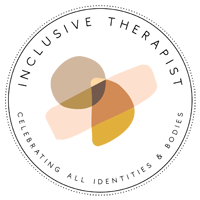Shame is a powerful emotion that many of us experience but few of us understand well. It can feel heavy, overwhelming, and isolating. But here’s the good news: once we understand shame better, we can learn to manage it and even heal from it because guess what? While it is a common human experience, it is certainly not a necessary one. Let’s dive into what shame is and explore some ways to break free from it.
What is Shame?
Shame is a deep feeling that there’s something fundamentally wrong with us. It’s not just feeling bad about something we’ve done (that’s guilt) but feeling bad about who we are as a person. Shame whispers things hurtful and dehumanizing things like “I’m not good enough,” “I’m unlovable,” or “I’m worthless.” It pains me thinking back on how often I’ve experienced and observed these insidious beliefs at work.
Shame can come from many sources:
- Childhood experiences
- Cultural or societal expectations
- Traumatic events
- Perfectionism
- Comparison with others
It’s important to know that everyone experiences shame sometimes. It’s a universal human emotion. But when shame becomes too intense or frequent, it can seriously impact our mental health and well-being.
How Shame Affects Us
Shame doesn’t just feel bad; it can affect how we think, act, and relate to others:
- Isolation: Shame often makes us want to hide from others.
- Self-criticism: We might be very hard on ourselves.
- Perfectionism: We might try to be perfect to avoid feeling shame.
- Anger: Sometimes, we lash out at others to protect ourselves from feeling shame.
- Low self-esteem: Shame can make us feel we have little value.
- Difficulty with vulnerability: We might struggle to open up to others.
What To Do About Shame
Now that we understand shame better, let’s look at some ways to address it:
- Recognize and Name It
The first step in dealing with shame is to recognize when we’re feeling it. Often, we might not even realize that the uncomfortable feeling we’re experiencing is shame. By naming it – “I’m feeling shame right now” – we start to take some of its power away.
- Practice Self-Compassion
Shame thrives on self-criticism, so practicing self-compassion is a powerful antidote. This means treating ourselves with the same kindness we’d offer a good friend. It might feel awkward at first, but with practice, it gets easier.
Try saying to yourself: “I am feeling shame right now, but it is not who I am. May I be kind to myself in this moment.”
- Share Your Experience
Shame loves secrecy. When we keep our shame to ourselves, it often grows stronger. Sharing our experiences with someone we trust can help reduce shame’s power. This could be a friend, family member, or therapist.
Remember, you don’t have to share everything all at once. Start small, with what feels safe and comfortable for you.
- Challenge Shame-Based Thoughts
Often, the thoughts that come with shame are not facts, even though they feel very true in the moment. Try to notice these thoughts and gently challenge them.
For example, if you catch yourself thinking “I’m worthless,” you might challenge that by thinking of times when you’ve been valuable to others or accomplished something you’re proud of.
- Practice Mindfulness
Mindfulness can help us observe our shame without getting caught up in it. It’s about noticing our thoughts and feelings – as if they were a movie you were watching – without judging them.
A simple mindfulness practice is to close your eyes, take a few deep breaths, and just notice what you’re feeling in your body. Remember, you’re not trying to change anything, just observing.
- Cultivate Connection
Shame often makes us feel alone, but connection with others is a powerful shame-reducer. This doesn’t mean you have to share your deepest feelings with everyone. Sometimes, just spending time with people who care about you can help reduce shame.
- Seek Professional Help
If shame is significantly impacting your life, it might be helpful to work with a therapist. They can provide a safe space to explore your feelings and learn strategies to manage shame.
Remember: You Are Not Your Shame
Shame is a feeling, not a fact about who you are. It’s something you experience, not something you are. With time, patience, and practice, it’s possible to reduce the impact of shame in your life.
It’s okay to take it one small step at a time. Be patient with yourself. You’re doing the best you can, and that’s enough.
Remember, you are worthy of love and belonging, exactly as you are. Shame might try to tell you otherwise, but shame is not the truth-teller in your life. You are.
Learn More
If you’re interested in learning more about the connection between anxiety and shame, we invite you to check out our Anxiety Therapy Page.
If you’d like to reach out to us, you are welcome to contact us here.













